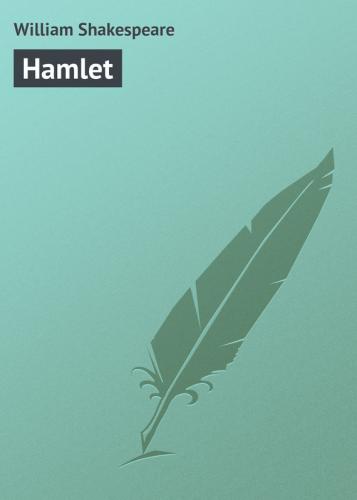Horatio. That can I.
At least, the whisper goes so. Our last king,
Whose image even but now appear'd to us,
Was, as you know, by Fortinbras of Norway,
Thereto prick'd on by a most emulate pride, 100
Dar'd to the combat; in which our valiant Hamlet
(For so this side of our known world esteem'd him)
Did slay this Fortinbras; who, by a seal'd compact,
Well ratified by law and heraldry,
Did forfeit, with his life, all those his lands 105
Which he stood seiz'd of, to the conqueror;
Against the which a moiety competent
Was gaged by our king; which had return'd
To the inheritance of Fortinbras,
Had he been vanquisher, as, by the same cov'nant 110
And carriage of the article design'd,
His fell to Hamlet. Now, sir, young Fortinbras,
Of unimproved mettle hot and full,
Hath in the skirts of Norway, here and there,
Shark'd up a list of lawless resolutes, 115
For food and diet, to some enterprise
That hath a stomach in't; which is no other,
As it doth well appear unto our state,
But to recover of us, by strong hand
And terms compulsatory, those foresaid lands 120
So by his father lost; and this, I take it,
Is the main motive of our preparations,
The source of this our watch, and the chief head
Of this post-haste and romage in the land.
Bernardo. I think it be no other but e'en so. 125
Well may it sort that this portentous figure
Comes armed through our watch, so like the King
That was and is the question of these wars.
Horatio. A mote it is to trouble the mind's eye.
In the most high and palmy state of Rome, 130
A little ere the mightiest Julius fell,
The graves stood tenantless, and the sheeted dead
Did squeak and gibber in the Roman streets;
As stars with trains of fire, and dews of blood,
Disasters in the sun; and the moist star 135
Upon whose influence Neptune's empire stands
Was sick almost to doomsday with eclipse.
And even the like precurse of fierce events,
As harbingers preceding still the fates
And prologue to the omen coming on, 140
Have heaven and earth together demonstrated
Unto our climature and countrymen.
[Enter Ghost again.]
But soft! behold! Lo, where it comes again!
I'll cross it, though it blast me. — Stay illusion! 145
[Spreads his arms.]
If thou hast any sound, or use of voice,
Speak to me.
If there be any good thing to be done,
That may to thee do ease, and, grace to me, 150
Speak to me.
If thou art privy to thy country's fate,
Which happily foreknowing may avoid,
O, speak!
Or if thou hast uphoarded in thy life 155
Extorted treasure in the womb of earth
(For which, they say, you spirits oft walk in death),
[The cock crows.]
Speak of it! Stay, and speak! — Stop it, Marcellus!
Marcellus. Shall I strike at it with my partisan? 160
Horatio. Do, if it will not stand.
Bernardo. 'Tis here!
Horatio. 'Tis here!
Marcellus. 'Tis gone!
[Exit Ghost.] 165
We do it wrong, being so majestical,
To offer it the show of violence;
For it is as the air, invulnerable,
And our vain blows malicious mockery.
Bernardo. It was about to speak, when the cock crew. 170
Horatio. And then it started, like a guilty thing
Upon a fearful summons. I have heard
The cock, that is the trumpet to the morn,
Doth with his lofty and shrill-sounding throat
Awake the god of day; and at his warning, 175
Whether in sea or fire, in earth or air,
Th' extravagant and erring spirit hies
To his confine; and of the truth herein
This present object made probation.
Marcellus. It faded on the crowing of the cock. 180
Some say that ever, 'gainst that season comes
Wherein our Saviour's birth is celebrated,
The bird of dawning singeth all night long;
And then, they say, no spirit dare stir abroad,
The nights are wholesome, then no planets strike, 185
No fairy takes, nor witch hath power to charm,
So hallow'd and so gracious is the time.
Horatio. So have I heard and do in part believe it.
But look, the morn, in russet mantle clad,
Walks o'er the dew of yon high eastward hill. 190
